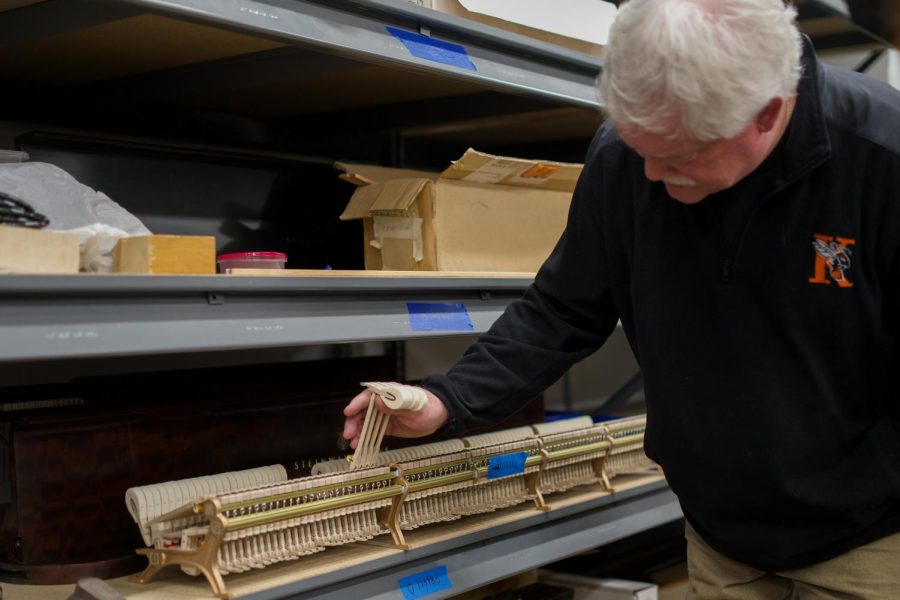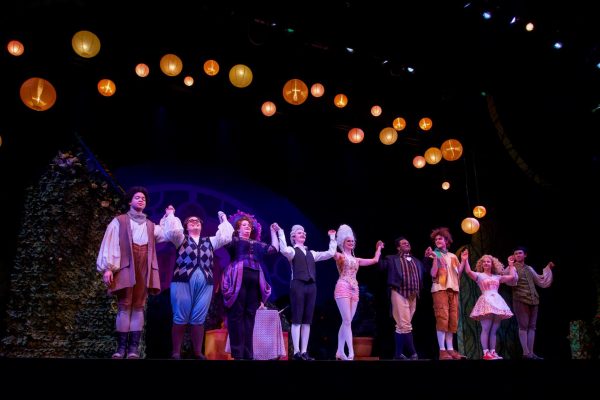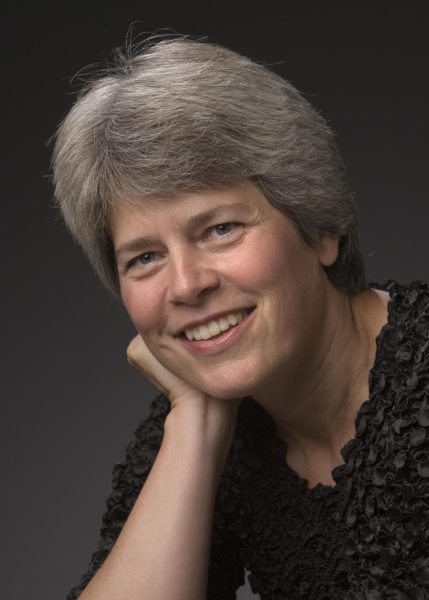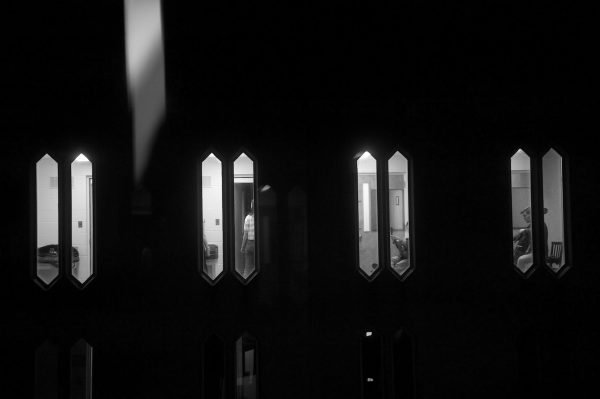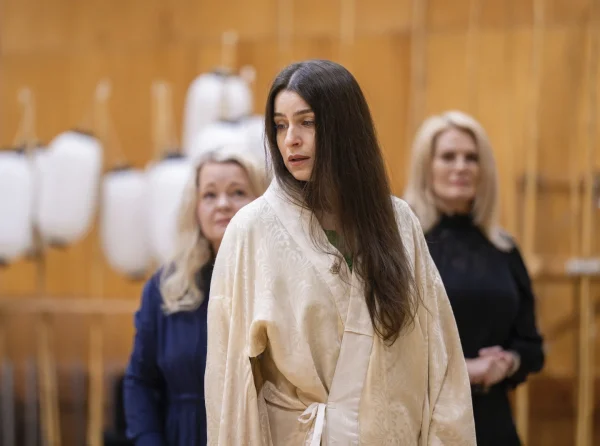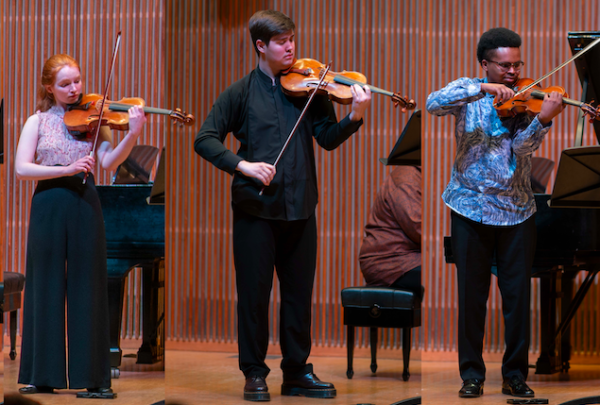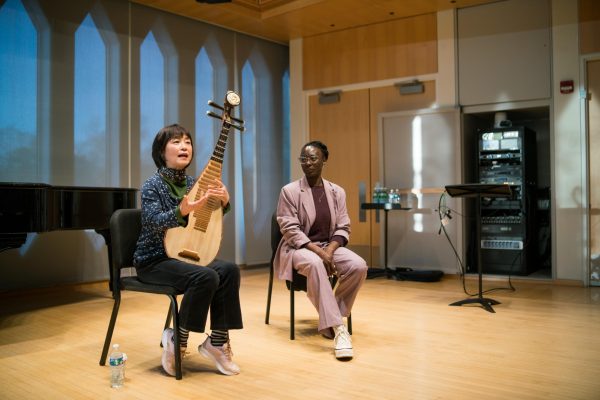Piano Technicians: The Unseen Artists of the Conservatory
In the early hours of the morning, before the music-making of the day begins, piano technicians are hard at work tuning pianos.
There are 250 pianos in the Conservatory, many of which get tuned daily. Tuning a piano takes even the most skilled technician about an hour, and there are only a handful of people in the Conservatory equipped to do the job.
The impact of this daily task is enormous. Every student in the Conservatory interacts with a piano at some point before graduating. First-year students take an introductory piano class upon arriving at Oberlin, pianos are almost always used for demonstrations in theory and aural skills classes, and every performance major collaborates with pianists for recitals or even for national and international competitions. In short, having properly tuned pianos is vital not only for student learning but for the reputation of the Conservatory as a whole.
This is all taken care of by the Piano Technology department. However, tuning pianos is not the only work they do; in fact, it’s just the tip of the iceberg.
Tucked away in the basement of Bibbins Hall, the department is home to the Artist Diploma in Piano Technology program, an immersive two-year mentorship that accepts a small number of students and turns them into expert piano technicians. Inside the workshop, four Steinways take center stage. Scattered around them are wood shavings, spare piano parts, and coiled-up strings. A diagram illustrating the “periodic table of wood” hangs proudly on a door. In a corner lies a table full of drying coffee mugs. It’s clear that this is not only the studio of a craftsman but an artist.
John Cavanaugh, director and creator of the Artist Diploma program, devised the program because he saw a need for piano technicians who were not only technically skilled but artistically savvy as well. By teaching students in a music conservatory setting, the program aims to bridge the gap between pianists and technicians through collaboration.
“We’re the only school that does this,” Cavanaugh said.
Upon graduating from the program, 90 percent of students are offered jobs in top positions at major music schools and acclaimed piano factories. Wenqin Yi OC’ 20, who was recently offered the top piano technician position at Michigan State University, is one of those alumni.
“A lot of young kids, they graduate, and they have difficulty getting one job,” Yi said. “But with piano technology, you spend two years and then you have a stable, strong skill that you can make a living with.”
The students in the program come from a wide range of backgrounds. Some came to Oberlin knowing a bit about piano maintenance, and some were pianists themselves. Among the members of the class are a retired high school music teacher, a student who is 70 years old, and a former restaurant owner.
“The students I went to school with were people who were tired of the rat race,” Cavanaugh said. “It’s a very eclectic group of people who are interested in this.”
The work of a master piano technician is interdisciplinary. A skill that combines mechanics, woodworking, math, physics, and the manipulation of tone and voicing, working on pianos is often equated to working on an elaborate crossword puzzle.
Unlike crossword puzzles, however, there is the additional challenge of working with a piano’s organic materials, as the materials in pianos expand and contract with weather changes. This leaves piano technicians with the difficult task of restoring pianos while constantly keeping the future in mind. Every move a technician makes could make or break the piano and its ability to endure temperature and humidity changes.
Andrew Bertoni, OC’ 88, works on the maintenance of the pianos in the Conservatory classrooms and Robertson Hall practice rooms, as well as the piano in the Cat in the Cream, which is his personal favorite.
“There are certain times a year where I go around because I know that there are a lot of strings breaking because of the change in humidity,” Bertoni said. “So the bridge on the piano is moving, and the strings are getting pulled, and they tend to break.”
Despite the constant maintenance, the Piano Technology department remains a foreign part of the Conservatory to many, including pianists.
“There are a couple of people on the piano faculty that come down here and have known me for 21 years, and they look around here like, ‘whoa’,” Cavanaugh said. “We always say, ‘Are you lost?’ They’re just upstairs, but they live in a totally different world — they have a totally different mindset. They call us the unseen artist. We’re the artists who work on the pianos, but no one knows. We’re like the elves who show up.”


